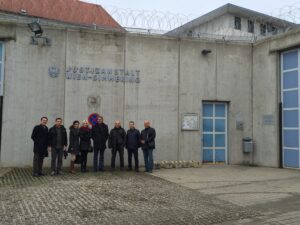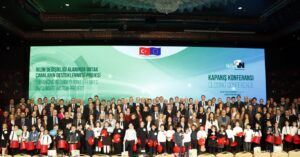
Technical Assistance for Improvement of Enforcement Services in Prisons (DEPAR)
There was a general recognition that standards and conditions in Turkish prisons needed to be improved and brought into line with international norms, particularly those operating in the EU in the context of closer EU-Turkey integration.

Technical Assistance on Mental Health Care and Drug Addiction Treatment Services in Prisons
Mental health and drug addiction are challenges for penitentiary systems all over the world. The purpose of this project was to tackle these issues in Turkish prisons and to bring the country’s penal services into line with international and European standards.

Technical Assistance for Support to the Local Human Rights Boards and Women’s Rights Awareness
Despite laws being passed in the 1990s to eliminate discrimination against women and a law to protect survivors of domestic violence being enacted in 1998, the country lags behind in implementing its national and international gender equality commitments. Women in Turkey continue to face challenges, with gender-based violence

Technical Assistance Support to the Women’s Breakthrough Project
Over the next century, half the world’s population growth is expected to take place in Africa. It is recognized that one of the continent’s most significant development challenges will be creating enough quality jobs and to employ this population growth. Gender equality, particularly the inclusion and empowerment of

Technical Assistance for Increased Public Understanding and Enhanced Stakeholder Capacity on the Required Joint Efforts on Climate Action
İklimIN began its implementation with the aim of increasing national and local capacity to prepare medium and long term climate actions towards climate resilient and low carbon development, increasing public understanding to foster joint climate action efforts which will result in gradual alignment with the EU climate policy

Technical Assistance for Promoting Social Inclusion in Densely Roma Populated Areas
It’s an obvious fact that there is a need to increase social inclusion in heavily populated areas, particularly in Rome, mainly by facilitating their entrance into the formal labour market. Within this context, the project aimed to support Rome’s population by improving the quality of education delivery, vocational

